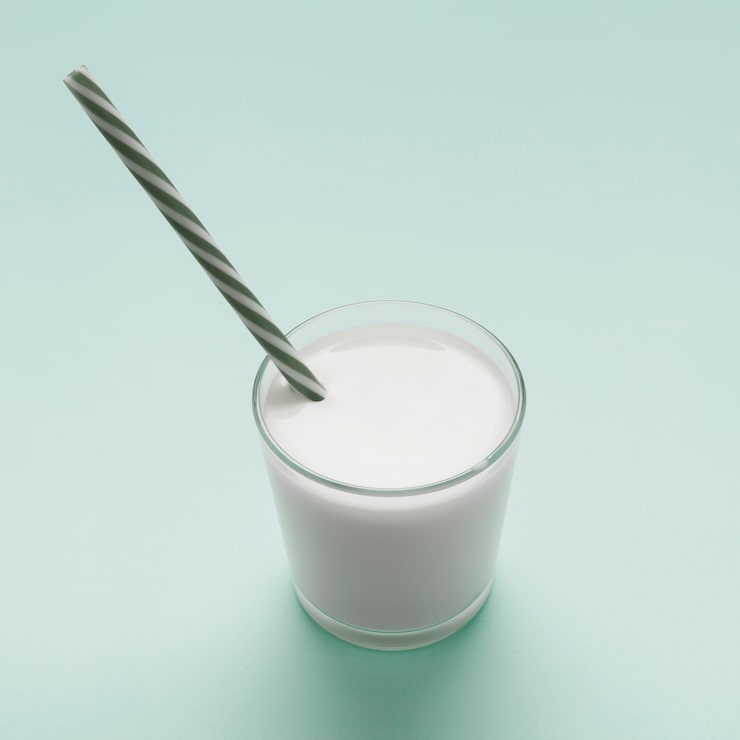Actimel has been a popular yogurt drink for years, and many people wonder whether it really offers health benefits or if it’s just marketing. In this article we look at the science behind Actimel to help you decide if it’s genuinely good for you. We’ll cover possible benefits, downsides, and what the research says.
Actimel history and formula
Actimel launched in 1994, but its story goes back to research on the L. casei probiotic strain that began in 1987. The L. casei Danone strain was later developed and added to the drink, and within a few years Actimel became an international brand. Over time its formula was refined and new ingredients were added. Around 2010, vitamin B6 and vitamin D were included to support the immune system. In 2018, a 0% fat and 0% added sugar version appeared, and today some bottles provide up to one-third of the daily recommended vitamin D in a single serving.

Ingredients (original flavor)
Yogurt (milk), water, skimmed milk, stabiliser (pectin), milk minerals concentrate, sweeteners (sucralose, acesulfame K), natural flavourings, Lactobacillus casei (L. casei Danone®), vitamins B6 and D.
Actimel no longer uses added sugar in the original flavor, replacing it with the artificial sweeteners sucralose and acesulfame K. Since some studies suggest artificial sweeteners can affect gut bacteria and health, this change isn’t without controversy.
Flavors and variations
Actimel comes in other flavors like Strawberry, Multifruit, and Strawberry Blueberry. Ingredients differ slightly by flavor: for example, Blueberry includes strawberry purée (2.1%), modified starch, dextrose and sugar/liquid sugar; Multifruit contains fruit juice from concentrate (2.1%) — pineapple, peach, orange and strawberry — plus modified starch, dextrose and sugar/liquid sugar.
Nutrition snapshot
Always check the label before eating or drinking anything. For Actimel Original (0% Added Sugar, 0% Fat), you’ll find low calorie and fat content. A bottle contains about 27 calories and almost no fat. There are no added sugars, but natural sugars appear at around 3 g per 100 g. Actimel is also a source of calcium (about 120 mg per 100 g), vitamin B6 (0.21 mg) and vitamin D (around 1.7 µg), and vitamin D helps your body absorb calcium for healthy bones and teeth.
Probiotics and health effects
Actimel contains a probiotic strain called L. casei Danone (also known as Lactobacillus paracasei). Probiotics can positively influence gut health, but effects vary by strain and condition. Here are some findings from studies:
– Immune support: Some research shows the L. casei DN 114001 strain can boost immune markers. One study found it increased lymphocyte counts, and another showed improved antibody responses in people over 70. A healthy gut microbiome is important for immune function, and probiotics like this strain may help.
– IBS (irritable bowel syndrome): A meta-analysis of 15 trials found probiotics can reduce IBS symptoms, and that included studies using L. paracasei (L. Danone), the strain used in Actimel.
– Antibiotic-associated diarrhea: Long use of antibiotics can cause diarrhea. One study found L. casei DN 114001, when combined with two other probiotic strains, helped prevent antibiotic-associated diarrhea. The World Gastroenterology Organization has also noted this strain can be effective in hospitalized adults.
– Acute diarrhea in children: Some evidence-based guides list L. casei DN 114001 as effective in treating acute diarrhea in children, where certain probiotic strains can shorten the duration of illness.
– Inflammatory bowel disease (IBD): Animal studies suggest L. casei DN 114001 may reduce intestinal inflammation and strengthen the gut barrier, which could help conditions like colitis. Some trials also showed non-living forms of the strain had beneficial effects. But these findings come mostly from animal research, so more human studies are needed.
– Common infections in children: A double-blind, randomized, placebo-controlled trial reported that L. casei DN 114001 reduced the overall incidence of illness in children aged 3–6 years.
Safety and side effects
Actimel is generally safe for most people. However, consuming large amounts of any probiotic product might cause side effects in some individuals. There’s also limited research on the long-term safety of regularly consuming strains like L. casei DN 114001. If you plan to use Actimel daily or in large quantities, it’s a good idea to check with a healthcare professional.
How and when to take it
The Actimel website says you can drink it any time of day and recommends pairing it with breakfast. Some research suggests probiotics may be more effective when taken on an empty stomach, so you might drink it about 30 minutes before a meal or a few hours after eating. The exact amount depends on the benefit you’re aiming for, but a common suggestion is no more than two bottles a day.
Digestive issues, weight and pregnancy
– Constipation: There’s no solid proof that Actimel specifically treats constipation. Some studies suggest probiotic drinks with L. casei DN 114001 may lower harmful enzyme activity in the gut, which could help digestion, but evidence is mixed.
– Weight loss: While certain probiotic strains have shown links to weight management, there’s little research on L. casei Danone specifically. Actimel alone shouldn’t be relied on for weight loss, though it could be a helpful part of a balanced diet and exercise plan.
– Pregnancy and breastfeeding: Probiotic and prebiotic foods are generally considered safe during pregnancy and lactation, so Actimel is likely safe for most pregnant and breastfeeding women. Still, talk to your healthcare provider if you have any concerns.
Bottom line
Actimel may help support the immune system, ease some IBS symptoms, and reduce certain types of inflammation, but more research is needed to confirm many of these effects. It’s low in calories, fat and added sugar, which can make it a reasonable choice for some people. However, it does use artificial sweeteners, which may affect gut bacteria and overall health for some individuals. If you’re thinking of making Actimel a regular part of your diet, consider discussing it with a healthcare professional.
More articles about Actimel:
Is Actimel Good for Weight Loss?
Yakult vs Actimel
Benecol vs Actimel